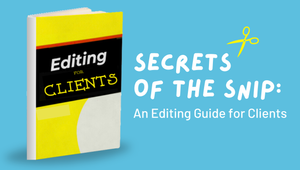
Behind the Scenes of Chêne Gear’s Tactile and Profound Ode to the Great Outdoors

There’s no feeling like falling in love with nature. Away from the cacophony of distractions of city life, and even the rigid grind of suburbia, the great outdoors imbues us with an intoxicating sense of freedom. That’s partly why Chêne Gear, one of the US’ most premium manufacturers of hunting gear, wanted to capture that feeling in a piece of branded entertainment. The resulting film, First Bird, tells the story of a boy following his father into the world of nature and forging a connection which will last a lifetime.
The film feels like a labour of love, and that’s precisely what it was for the creative and moviemaking minds behind the scenes. To find out more about the ad, LBB caught up with Outfox EP and creative director Austin Gauthier, editor and filmmaker Chase Guidroz, alongside Cadence Post’s Rick Nelson.
As Austin explains, First Bird was the result of a longstanding collaboration between Outfox and Chêne Gear. “My vision for a narrative film within the outdoor industry came to fruition after two years of contract work with Chêne Gear”, he recalls. “Recognising the balance of my vision of 'First Bird,' and Chêne Gear's ethos, I pitched the concept to them. Their acceptance not only validated the project, but also provided the necessary budget to bring this vision to life”.
That decision to run with a narrative-driven piece of branded entertainment - rather than a traditional ad - was seamless. “The choice of Chêne Gear as the subject for branded content was rooted in their position as a reputable and leader in the outdoor clothing industry”, continues Austin. “Their brand and products seamlessly integrated into the narrative structure of the film, ensuring a natural representation within the storyline”.
With the vision agreed upon, the biggest challenge was about how to bring it to life most effectively. Authentically capturing not just the imagery, but also the feeling of being closer to the natural world was imperative to ensure the project stuck the landing. As Rick explains, the film’s sound design was integral to accomplishing this.
“Emphasising the feeling of nature’s freedom was indeed a crucial aspect of the sound design for this film, particularly during the hunting scenes”, he says. “To achieve this, we focused on capturing the inherent quietness and tranquillity of a duck blind. The setting itself, nestled in the marshes and surrounded by grasses, naturally lends itself to a calm and serene atmosphere”.
As well as the sound, smart use of colour was vital in establishing the right tone for the film. “This one was all about keeping it natural, with heavy-ish contrast and slightly muted tones”, adds Chase. “As for exposure, If the characters couldn’t see, the audience couldn’t see much either. If it was midday and the sun was beating down, we kept the image hot”.
What makes the film’s depiction of nature so accurate, however, isn’t just the team’s approach to all things organic. The man-made aspects of the story also feel weighty and impactful - not least with the crashing firing of shotgun fire. “An essential aspect of being in the field is the experience of shotgun fire,” notes Rick. “Hunters wear ear protection, which muffles the sharp sounds of shotguns. To replicate this auditory experience for the viewers, I layered subsonic sweetners to shotgun to create a richer, more hard-hitting effect. This not only serves to enhance the realism, but also emphasises the raw power and impact of each shot”.
It’s in those more intense moments where the film switches from tranquillity to tension on a dime, but it never feels janky or forced. Those sharp sounds strike all the more clearly precisely because they’re juxtaposed with the silence of other elements. “There is so much adrenaline in real life during those moments”, says Chase. “You can't see much, and it's so cold your sense of touch is limited, so hearing is extremely heightened”.
Despite the team’s detail-oriented approach, however, there are always variables which filmmakers have to deal with. Here, it was all about timing. “One of the primary challenges we encountered during the project was the pursuit of optimal lighting conditions”, says Austin. “Particularly the 30 minutes before sunrise, which is the crucial period during waterfowl hunting when the essence of nature is awakening”.
To get around that, the team embraced nimbleness with a skeleton crew allowing for operational efficiency. Amidst the action-heavy sequences, however, more challenges arose. During editorial, it transpired that the lapel microphones for the lead actor weren't available for a few key scenes. As a result, boom mics were exclusively used for audio processing - providing an opportunity for the team to innovate.
Rick explains, “We embraced the challenge by employing Adobe’s Enhanced Speech, which utilizes AI to enhance recording quality.” This strategic move allowed the team at Cadence Post to uniformly elevate the audio across the film, ensuring consistency and clarity in every scene - even though Adobe’s Enhanced Speech was, at the time, still in beta.
All of that technical know-how was, of course, put to work in service of the underlying narrative that helps the film hit home. The story’s beating heart is the relationship between the father and his son, something that Austin was careful to keep in mind throughout.
“Their dynamic reflects the universal theme of mentorship and shared passion”, he says. “And it portrays the essence of falling in love with the outdoors through a meaningful relationship”.
Without that emotional core, First Bird wouldn’t have been able to land with as much confidence as it does. After all, there’s no feeling like falling in love with nature.















